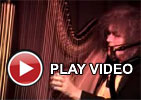Deepleaf
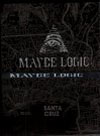 For the last 40 years of consensus space-time, the entity known as Robert Anton Wilson - author, philosopher, neuroscientist, psychedelic comedian, mystic, shaman and Pope - has been tirelessly exploring the tantalizing, puzzling, enigmatic, bizarre, mind-bending and funny metaphysical mysteries of human existence. Now comes Maybe Logic, a definitive documentary about Pope Bob, in the form of an independently released two-DVD set from Deepleaf Productions.
For the last 40 years of consensus space-time, the entity known as Robert Anton Wilson - author, philosopher, neuroscientist, psychedelic comedian, mystic, shaman and Pope - has been tirelessly exploring the tantalizing, puzzling, enigmatic, bizarre, mind-bending and funny metaphysical mysteries of human existence. Now comes Maybe Logic, a definitive documentary about Pope Bob, in the form of an independently released two-DVD set from Deepleaf Productions.
In 1977, Robert Anton Wilson published Cosmic Trigger, an unparalleled epic adventure of deliberately induced brain change, interstellar revelations and mystical initiation. Cosmic Trigger uniquely accounted Wilson's mind-expanding voyage from an atheist, ex-Catholic skeptic to a Buddhist, a Sufi, a Gnostic, a Witch, a Thelemic Magician and a Discordian Pope. Interwoven into this singularly electrifying narrative were ruminations on the Illuminati, synchronicity, conspiracy theory, Finnegan's Wake, Timothy Leary's eight-circuit model of human consciousness, Aleister Crowley, quantum physics and transactional psychology. Robert Anton Wilson had tapped into a current of thought about the universe that has existed since the dawn of man, and was able to make a linkage between all of the various "solutions" to the impossibly enigmatic nature of the universe - scientific theories, philosophies, religious dogmas and cult doctrines - and in the process, he mapped the interior of our belief-derived reality tunnels. While there are dozens of other futurists, mystics and new-age philosophers who have written about such ideas, no one could ever match the engaging humor, the inherent rationalism and the contagious adventurousness of Robert Anton Wilson's more than 30 books, plays and novels. Pope Bob's unique convergence of ideas has served as the basis for the Church of the Subgenius, The Temple of Psychick Youth and the current of occultism known as Chaos Magick.
The main attraction of this DVD set is the one-and-a-half hour video documentary Maybe Logic. This documentary is obviously a labor of love, combining old footage with abundant new interviews with Wilson himself, as well as a host of colleagues, admirers and disciples. We see Pope Bob as an old man - an eccentrically cherubic, white-bearded cross between Confucius, Siddhartha and Mr. Natural. Sadly, he is in the advanced stages of post-polio syndrome, and is confined to a wheelchair, in acute pain for most of his waking hours. Always a libertarian thinker, his recent illness has led him to become an ardent supporter of medicinal marijuana, which he claims is the only analgesic for his constant, intense pain. But despite these tragedies, one cannot help but be impressed by Robert Anton Wilson's unshakable optimism, his creativity, and his unending inquisitiveness. These interviews are edited together with aplomb, the director using a myriad of cutting-edge, mind-bending digital video effects to further intensify the cosmic revelations in Wilson's monologues. The soundtrack is equally superb, with suitably thought-provoking contributions from Boards of Canada, Matt Elliott, The Cinematic Orchestra, Tarantel, Funki Porcini and Amon Tobin.
The second DVD includes supplemental interviews and lectures about various subjects, from James Joyce's Finnegan's Wake to the allegorical BBC television series The Prisoner, as well as some exercises designed to awaken your own internal neurological warrior. If you were hazy about quantum physics, mysticism, magick, conspiracy theories and existentialism before, watching this DVD could truly trigger a Kundalini-like awakening of your dormant consciousness. As a bonus, the simple act of watching this DVD will officially ordain you, the viewer as a Discordian Pope. Wilson's final message is that the universe is "plural and mutable" - a vast, un-simultaneously comprehended confluence of subjectively created belief systems and reality tunnels. If you can properly understand Pope Bob's universe, there can be no room for intolerance or misunderstanding, only a constantly renewed sense of vigour, optimism and adventure in discovering the staggering creative potential of the human nervous system.
 On their last album, A Silver Mt. Zion grew to the Memorial Orchestra and Tra-la-la Band. This time around the players are the same six stalwarts, and they've added a choir for some extra flavor. As the name and roster grows for Efrim's ever necessary ensemble so also does the music become more and more powerful and damaging. Their songs seem to be getting closer and closer to the gy!be motif, with delicate, fluid, and lovely passages that explode into pounding earthquake-threatening dirges of grandeur. The only main difference is the increasingly awkward Efrim vocals, though it feels like at least he is more comfortable with them on each song, even if they're not any easier to listen to.
On their last album, A Silver Mt. Zion grew to the Memorial Orchestra and Tra-la-la Band. This time around the players are the same six stalwarts, and they've added a choir for some extra flavor. As the name and roster grows for Efrim's ever necessary ensemble so also does the music become more and more powerful and damaging. Their songs seem to be getting closer and closer to the gy!be motif, with delicate, fluid, and lovely passages that explode into pounding earthquake-threatening dirges of grandeur. The only main difference is the increasingly awkward Efrim vocals, though it feels like at least he is more comfortable with them on each song, even if they're not any easier to listen to. 

 For the last 40 years of consensus space-time, the entity known as Robert Anton Wilson - author, philosopher, neuroscientist, psychedelic comedian, mystic, shaman and Pope - has been tirelessly exploring the tantalizing, puzzling, enigmatic, bizarre, mind-bending and funny metaphysical mysteries of human existence. Now comes Maybe Logic, a definitive documentary about Pope Bob, in the form of an independently released two-DVD set from Deepleaf Productions.
For the last 40 years of consensus space-time, the entity known as Robert Anton Wilson - author, philosopher, neuroscientist, psychedelic comedian, mystic, shaman and Pope - has been tirelessly exploring the tantalizing, puzzling, enigmatic, bizarre, mind-bending and funny metaphysical mysteries of human existence. Now comes Maybe Logic, a definitive documentary about Pope Bob, in the form of an independently released two-DVD set from Deepleaf Productions.  Sometimes people just have to be cruel, especially when they're asked to listen to the worst album they've heard in a decade. Anyone who writes reviews will eventually get used to reading all kinds of press releases, from the useful detailed biographic ones to the amusingly erroneous ones to the ones that are quite clearly ridiculous hype for vapid old rope with no substance whatsoever. If The Fly magazine is calling a band genius then any music lover with any aesthetic sense whatsoever will see red hype alarm bells flashing. (The Fly is a faux-fanzine, set up by London based PR wafflers and is given away free at various venues throughout the UK, so that drunk faux-indie kids have something to use when the toilet paper runs out.)
Sometimes people just have to be cruel, especially when they're asked to listen to the worst album they've heard in a decade. Anyone who writes reviews will eventually get used to reading all kinds of press releases, from the useful detailed biographic ones to the amusingly erroneous ones to the ones that are quite clearly ridiculous hype for vapid old rope with no substance whatsoever. If The Fly magazine is calling a band genius then any music lover with any aesthetic sense whatsoever will see red hype alarm bells flashing. (The Fly is a faux-fanzine, set up by London based PR wafflers and is given away free at various venues throughout the UK, so that drunk faux-indie kids have something to use when the toilet paper runs out.)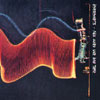 A lot of electronic-based musicians and producers make reference tojazz music and its instrumentation in their sampling and arranging;mostly from the post-bop and cool eras. For a good chunk of this disc,Los Angeles hip hop producer Daddy Kev (aka Kevin Marques Moo)stretches the backing tracks to the far reaches in a true free-jazzspirit. Kev combines soloing drums, upright bass, funky loops, guitarruns and other ambient sounds with precise turntable manipulationprovided by D-Styles. The unique voice of MC Awol One plays off ofthese tracks with free-association/spoken word riffs that range fromhumorous to serious for a new take on beat poetry (no pun intended).Tracks such as "Finger Paint with Bloodlike War Paint," "Grey Skys inPsycho-Delic RGB," and "Buyin' Friends on Ebay" kick along to steadyrhymes and beats with quotes from orchestras, saxophone and piano."Idiot Savant Autistic Delivery" opens with a spoken-word sample aboutplaying free music that Awol One throws in his own dialogue to give asense of conversation. Steady hi-hat lays down a groove for FenderRhodes and bass to convey an all too brief 70s soundtrack for a copshow chase sequence that is scratched with vocal samples. As jazz andrap are said to be closely related, it was just a matter of time beforefree jazz and fusion made their way into the hybrid of hip hop soprominently.
A lot of electronic-based musicians and producers make reference tojazz music and its instrumentation in their sampling and arranging;mostly from the post-bop and cool eras. For a good chunk of this disc,Los Angeles hip hop producer Daddy Kev (aka Kevin Marques Moo)stretches the backing tracks to the far reaches in a true free-jazzspirit. Kev combines soloing drums, upright bass, funky loops, guitarruns and other ambient sounds with precise turntable manipulationprovided by D-Styles. The unique voice of MC Awol One plays off ofthese tracks with free-association/spoken word riffs that range fromhumorous to serious for a new take on beat poetry (no pun intended).Tracks such as "Finger Paint with Bloodlike War Paint," "Grey Skys inPsycho-Delic RGB," and "Buyin' Friends on Ebay" kick along to steadyrhymes and beats with quotes from orchestras, saxophone and piano."Idiot Savant Autistic Delivery" opens with a spoken-word sample aboutplaying free music that Awol One throws in his own dialogue to give asense of conversation. Steady hi-hat lays down a groove for FenderRhodes and bass to convey an all too brief 70s soundtrack for a copshow chase sequence that is scratched with vocal samples. As jazz andrap are said to be closely related, it was just a matter of time beforefree jazz and fusion made their way into the hybrid of hip hop soprominently.  If records are fetish objects in the same sense that pornography is,then people who scour the globe for every last shred of vinyl relatedto spastic Japanese bands have got to be emotionally retarded in thesame way that fanciers of tentacle-rape animeare, right? Thankfully, the gang of musicians represented on the latestOOIOO record have reached a bit further back into their lives than thepoint at which giant-robot cartoons were the height of cool, and havebrought forward a kid's enthusiasm for tuneless xylophone banging andnonsensical whispering. This sits alongside repetitive ritualpercussion, noodly organ lines and increasingly complex harmoniesshared by a fairly wide assortment of instruments in a way thatoccasionally makes a lot of sense. I won't pretend to understand whatmakes some of these tunes worth exploring for fifteen minutes whileothers are abandoned after two or less, and I can't help but bedisappointed that the rousing trumpet-and-bass trance hoedown of "onmani," which brought a recent OOIOO concert to an absolutely crazedend, just sort of unfolds logically and goes away halfway through thealbum here. At least they don't rely on three-second-long yelpingtracks or bullshit mysticism for effect, and sometimes the combinationsthat they come up with are so good that I just don't want them to end.OOIOO shows are far more recommendable to catch as the energy capturedin the studio on this disc is nowhere near the heights that the band iscapable of reaching on stage. Thankfully Kila Kila Kila doesn't come close to being as sunny-new-age-schlocky as some of the material on Shock City Shockers 2.
If records are fetish objects in the same sense that pornography is,then people who scour the globe for every last shred of vinyl relatedto spastic Japanese bands have got to be emotionally retarded in thesame way that fanciers of tentacle-rape animeare, right? Thankfully, the gang of musicians represented on the latestOOIOO record have reached a bit further back into their lives than thepoint at which giant-robot cartoons were the height of cool, and havebrought forward a kid's enthusiasm for tuneless xylophone banging andnonsensical whispering. This sits alongside repetitive ritualpercussion, noodly organ lines and increasingly complex harmoniesshared by a fairly wide assortment of instruments in a way thatoccasionally makes a lot of sense. I won't pretend to understand whatmakes some of these tunes worth exploring for fifteen minutes whileothers are abandoned after two or less, and I can't help but bedisappointed that the rousing trumpet-and-bass trance hoedown of "onmani," which brought a recent OOIOO concert to an absolutely crazedend, just sort of unfolds logically and goes away halfway through thealbum here. At least they don't rely on three-second-long yelpingtracks or bullshit mysticism for effect, and sometimes the combinationsthat they come up with are so good that I just don't want them to end.OOIOO shows are far more recommendable to catch as the energy capturedin the studio on this disc is nowhere near the heights that the band iscapable of reaching on stage. Thankfully Kila Kila Kila doesn't come close to being as sunny-new-age-schlocky as some of the material on Shock City Shockers 2.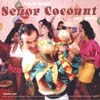 This isn't just a lame Hollywood sequel to a tacky but entertaining guilty pleasure, it's a part three of a series which should have been killed long ago. Uwe Schmidt (Atom‚Ñ¢, Atom Heart) and his gang of Chileans' style worked undeniably well in a humorous way with the Kraftwerk covers on El Baile Alem?. It made sense: Uwe being a German living in Chile and the rest being Chileans, a few who have spent time living in Germany. The vocalist maintained the robotic, inflectionless feeling of the original songs while the group kept to very strict rhythms. The output was something both entertaining and worth numerous listens. To hear it all over again with almost lifeless covers of popular 1970s and 1980s classics is simply laborious. It's a joke that just isn't funny any more.
This isn't just a lame Hollywood sequel to a tacky but entertaining guilty pleasure, it's a part three of a series which should have been killed long ago. Uwe Schmidt (Atom‚Ñ¢, Atom Heart) and his gang of Chileans' style worked undeniably well in a humorous way with the Kraftwerk covers on El Baile Alem?. It made sense: Uwe being a German living in Chile and the rest being Chileans, a few who have spent time living in Germany. The vocalist maintained the robotic, inflectionless feeling of the original songs while the group kept to very strict rhythms. The output was something both entertaining and worth numerous listens. To hear it all over again with almost lifeless covers of popular 1970s and 1980s classics is simply laborious. It's a joke that just isn't funny any more.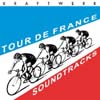 It has been 20 years since Kraftwerk's single-only release "Tour deFrance," and it has been 17 years since they wrote a good tune. Fansseeking anthems for the new millennium from techno's most importantpioneers might feel a little bit let down as this disc is simply acollection of nice sounds and beats with very thin melodies. The groupproves that their usage of technology hasn't waned, nor has theiraffinity for the rigid 4/4 beats of techno, but not one song heresticks out to be anything half as remarkable or memorable as theirclassics of yesteryear. In many ways it seems like the group is takingmore rhythmic influence from the other popular sounds of contemporaryGerman techno like the output on Kompakt. The repetitious beats arerespectable and unobtrusive, never overindulgent or busy, and the fatstynth sounds are quite meaty. The disc opens much like a DJ mix astrack numbers fly by through a "Prologue" and three parts of "Tour DeFrance Etape," when the songs don't really end. Echoed keyboardmelodies flutter in time with the beats, and spaciously occupy nearlyevery corner of the room. Occasionally, the group ends a song to startsomething different. Like the cyclists changing gears, heading up thehills, downtempo songs like "Vitamin" and "Elektro Kardiogramm" eachbegin new movements with new feels and speeds. The disc concludes witha new version of "Tour De France" which isn't much of a departure fromthe two decade old classic. It's neither dislikable nor remarkable.After the end, however, there's no melodies running around my head orbegging me to replay the music. Much like Expo 2000, Tour de Franceis functional music. It would be nice if this was the end of functionalmusic for them for now as I'm unfortunately cursed by expectations ofthe group to release something good that can stand on its own.
It has been 20 years since Kraftwerk's single-only release "Tour deFrance," and it has been 17 years since they wrote a good tune. Fansseeking anthems for the new millennium from techno's most importantpioneers might feel a little bit let down as this disc is simply acollection of nice sounds and beats with very thin melodies. The groupproves that their usage of technology hasn't waned, nor has theiraffinity for the rigid 4/4 beats of techno, but not one song heresticks out to be anything half as remarkable or memorable as theirclassics of yesteryear. In many ways it seems like the group is takingmore rhythmic influence from the other popular sounds of contemporaryGerman techno like the output on Kompakt. The repetitious beats arerespectable and unobtrusive, never overindulgent or busy, and the fatstynth sounds are quite meaty. The disc opens much like a DJ mix astrack numbers fly by through a "Prologue" and three parts of "Tour DeFrance Etape," when the songs don't really end. Echoed keyboardmelodies flutter in time with the beats, and spaciously occupy nearlyevery corner of the room. Occasionally, the group ends a song to startsomething different. Like the cyclists changing gears, heading up thehills, downtempo songs like "Vitamin" and "Elektro Kardiogramm" eachbegin new movements with new feels and speeds. The disc concludes witha new version of "Tour De France" which isn't much of a departure fromthe two decade old classic. It's neither dislikable nor remarkable.After the end, however, there's no melodies running around my head orbegging me to replay the music. Much like Expo 2000, Tour de Franceis functional music. It would be nice if this was the end of functionalmusic for them for now as I'm unfortunately cursed by expectations ofthe group to release something good that can stand on its own.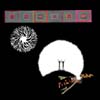 A sinister gift was misdirected to Mt Ikomo, Japan. The toy xylophone had a message attached: "Brian Eno Needs Ideas." Two Japanese ladies of some renown got in the van and did it for the small noise circular.
A sinister gift was misdirected to Mt Ikomo, Japan. The toy xylophone had a message attached: "Brian Eno Needs Ideas." Two Japanese ladies of some renown got in the van and did it for the small noise circular.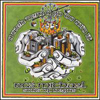 The first ten minutes of this are not like any typical reggae recordingI've ever heard. Entitled "Rastaman Chant," the first track is a seriesof religous messages and what might be mistaken for exotic African ormiddle-eastern instruments. This style, based on traditional Jamaicandrumming, is quite entrancing and provides for a mesmerizing firsttrack. Unfortunatly, after "Rastaman Chant," nothing quite compares.Many of the songs have what sound like cheap Casio keyboards backing uprather lackluster lyrics and making for a generally cheap feeling allaround. When Ras Michael decides to move into more familiar reggaeterritory, he brings along bits and pieces of the nyabinghi style aswell as some jazzy horn parts and more passionate lyrics. He alsobrings, unfortunatly, numerous remixes that are completely pointlessand that either vary in no way from the original or sound less inspiredthan the original mix. With these remixes taken off of the album, agood twenty minutes is removed that makes the album shorter and thusmore enjoyable and easy to swallow. There are some good songs here, butafter a while it all begins to sound the same and, to be sure, thereare plenty of songs that are based off the same old reggae rhythm withlittle additions here and there. The solo horn parts on some of thesongs are a great addition and add a whole new element to reggae musicmaking it both mysterious and daring. It's just a same that so muchhere seems as if it were recorded with little belief in the power ofthe music being written. Also, the tracklisting seems to be totallyoff: it lists sixtreen tracks when I only count thirteen. The onlyexplanation is that the first three tracks are actually all one songunder the title of "Rastaman Chant." Ras Michael obviously has a ton oftalent and knows how to write decent music, so why he decided tosurround some strong material with a lot of wishy-washy, throw-awaytunes baffles me.
The first ten minutes of this are not like any typical reggae recordingI've ever heard. Entitled "Rastaman Chant," the first track is a seriesof religous messages and what might be mistaken for exotic African ormiddle-eastern instruments. This style, based on traditional Jamaicandrumming, is quite entrancing and provides for a mesmerizing firsttrack. Unfortunatly, after "Rastaman Chant," nothing quite compares.Many of the songs have what sound like cheap Casio keyboards backing uprather lackluster lyrics and making for a generally cheap feeling allaround. When Ras Michael decides to move into more familiar reggaeterritory, he brings along bits and pieces of the nyabinghi style aswell as some jazzy horn parts and more passionate lyrics. He alsobrings, unfortunatly, numerous remixes that are completely pointlessand that either vary in no way from the original or sound less inspiredthan the original mix. With these remixes taken off of the album, agood twenty minutes is removed that makes the album shorter and thusmore enjoyable and easy to swallow. There are some good songs here, butafter a while it all begins to sound the same and, to be sure, thereare plenty of songs that are based off the same old reggae rhythm withlittle additions here and there. The solo horn parts on some of thesongs are a great addition and add a whole new element to reggae musicmaking it both mysterious and daring. It's just a same that so muchhere seems as if it were recorded with little belief in the power ofthe music being written. Also, the tracklisting seems to be totallyoff: it lists sixtreen tracks when I only count thirteen. The onlyexplanation is that the first three tracks are actually all one songunder the title of "Rastaman Chant." Ras Michael obviously has a ton oftalent and knows how to write decent music, so why he decided tosurround some strong material with a lot of wishy-washy, throw-awaytunes baffles me. When I try and explain the more noisy selections in my albumcollection, it's at times difficult to explain what makes somethingmusical to you and how it is different from dropping a collection ofpots and pans down a concrete stairwell or jumping up and down on apiano using a hammer to strum a guitar. I'll admit it's often a fineline. The unfortunate result of this conversation is usually a cop outalong the lines of "I know it when I hear it," which, whileunsatisfying, is ultimately true. This is not a line of thought Ibelieved I would have to undertake when I slipped in this Butchy Fuegoalbum for the first time. The opening tracks consist of some gentlymelodic piano and horns that sounds like a good old time on the frontporch where the neighbors have brought their instruments for a hoedown.It's hokey, but mostly fun music and perfectly listenable. Thiscontinues over the course of several songs with titles like "AnotherDay at the Pizzeria" and "Hot Balls," until, for some reason, Mr. Fuegodecides to change things up a bit. Now, until this point, the music hadbeen doing rather well, and "Music For Sarah's Film" blendedinteresting static breaks with carnival style calliope and sounds.After this, forget it. First off, he named the next track "Filler." Howinfuriating is that? And it's true, the tiny track consists of nothingmore than a few random bloops, a short guitar lick, and some mumblemoans into the microphone. It is filler, he obviously knew it wasfiller, and yet it must be released. "Bumbleplight" momentarily rescuesthings with a glitchy IDM style workout, light years from the openingmaterial and strangely out of place, but nonetheless interesting.Following this schizophrenic path, we're then treated to randomsections and snippets of songs contained within one track, ranging fromsynth-pop new wave to squealing, fuzzy bashing on the instruments."Bunny" features some sloppy beatboxing amidst the shards of music thatlie behind it. From the sound of the last several tracks, it soundslike this was an improvisational brainstorm session to come up withsong ideas and that they just got lazy and put this out instead ofdistilling the more interesting and better developed parts (and believeit or not, there are some). Halfway through "Bunny," a good song popsout of nowhere, much to the listener's surprise. There's undevelopedpotential in the slop of this bipolar, incomprehensible tangle, whichonly makes it more infuriating that those ideas are lost underneathjerky goofball stupidity. Even with those flashes of possibility, thefinal piece almost ensures a spin in the microwave for Butchy Fuego.The album closes with "Outro," a track that after five minutes ofsilence concludes with an all onomatopoeia rendering of what I believeis the consumption and digestion of food, eventually leading toexcretion and the sound of rushing water that I take to be flushingfollowed by a door closing. Now, this scenario is not entirely clearfrom the track, merely my impression of what is going on. Mostlybecause the album itself seems perfectly evocative of somethinggenerally pleasing and unassuming disintegrating into self indulgenceand crap.
When I try and explain the more noisy selections in my albumcollection, it's at times difficult to explain what makes somethingmusical to you and how it is different from dropping a collection ofpots and pans down a concrete stairwell or jumping up and down on apiano using a hammer to strum a guitar. I'll admit it's often a fineline. The unfortunate result of this conversation is usually a cop outalong the lines of "I know it when I hear it," which, whileunsatisfying, is ultimately true. This is not a line of thought Ibelieved I would have to undertake when I slipped in this Butchy Fuegoalbum for the first time. The opening tracks consist of some gentlymelodic piano and horns that sounds like a good old time on the frontporch where the neighbors have brought their instruments for a hoedown.It's hokey, but mostly fun music and perfectly listenable. Thiscontinues over the course of several songs with titles like "AnotherDay at the Pizzeria" and "Hot Balls," until, for some reason, Mr. Fuegodecides to change things up a bit. Now, until this point, the music hadbeen doing rather well, and "Music For Sarah's Film" blendedinteresting static breaks with carnival style calliope and sounds.After this, forget it. First off, he named the next track "Filler." Howinfuriating is that? And it's true, the tiny track consists of nothingmore than a few random bloops, a short guitar lick, and some mumblemoans into the microphone. It is filler, he obviously knew it wasfiller, and yet it must be released. "Bumbleplight" momentarily rescuesthings with a glitchy IDM style workout, light years from the openingmaterial and strangely out of place, but nonetheless interesting.Following this schizophrenic path, we're then treated to randomsections and snippets of songs contained within one track, ranging fromsynth-pop new wave to squealing, fuzzy bashing on the instruments."Bunny" features some sloppy beatboxing amidst the shards of music thatlie behind it. From the sound of the last several tracks, it soundslike this was an improvisational brainstorm session to come up withsong ideas and that they just got lazy and put this out instead ofdistilling the more interesting and better developed parts (and believeit or not, there are some). Halfway through "Bunny," a good song popsout of nowhere, much to the listener's surprise. There's undevelopedpotential in the slop of this bipolar, incomprehensible tangle, whichonly makes it more infuriating that those ideas are lost underneathjerky goofball stupidity. Even with those flashes of possibility, thefinal piece almost ensures a spin in the microwave for Butchy Fuego.The album closes with "Outro," a track that after five minutes ofsilence concludes with an all onomatopoeia rendering of what I believeis the consumption and digestion of food, eventually leading toexcretion and the sound of rushing water that I take to be flushingfollowed by a door closing. Now, this scenario is not entirely clearfrom the track, merely my impression of what is going on. Mostlybecause the album itself seems perfectly evocative of somethinggenerally pleasing and unassuming disintegrating into self indulgenceand crap.